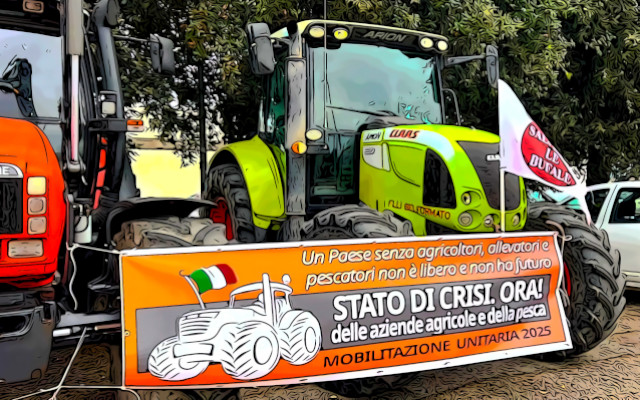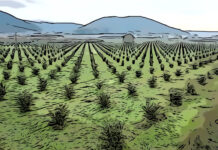On 10 December 2024, the European Commission adopted Regulation (EU) 2024/3118 which doubles the ‘de minimis‘ State aid thresholds, in the agricultural sector. A ‘de minimis‘ reform in its turn, in relation to the needs of European farmers.
1) State aid ‘de minimis‘, the EU rules
De Minimis Regulation (EU) 1408/2013, DMR, introduced the basic criteria for State aid to agricultural companies – where of modest amount, ‘de minimis‘ precisely – may be exempted from the control regime by the European Commission, otherwise prescribed under the TFEU (Treaty for the Functioning of the European Union), Article 107.1. (1)
The thresholds of ‘de minimis‘ state aid were subject to this exemption as follows:
– at the beneficiary company level, up to €25.000 in three financial years;
– at national level, within 1% of the total value of annual agricultural production.
‘De minimis‘ State aid were therefore permitted, within these limits, since they were considered not capable of significantly distorting competition and trade in the internal market.
2) ‘De minimis‘, the doubling of the thresholds
Revision of the De Minimis Regulation introduced by Regulation (EU) 2024/3118, in force from 16 December 2024, doubles the ‘de minimis‘ maximum aid amount on both levels of:
– agricultural company, from €25.000 to €50.000 over a period of three financial years (Article 3);
– Member State, from 1% to 2% of the value of annual agricultural production (Article 5). (2)
3) Simplification of procedures
Simplification of procedures is another important aspect in the review of the De Minimis Regulation (EU) 1408/2013. The introduction of aid is no longer subject to prior notification by Member States to the European Commission, thus reducing bureaucracy and accelerating the disbursement, at least in theory, of state contributions. (3)
Member States in any case, are required to comply with transparency obligations that require precise reporting of the aid granted, with registration of all the benefits granted to each company and their overall calculation (DMR, article 9). To guarantee compliance with the new, albeit increased, ceilings.
4) Ratio legis
The reform under consideration aims to provide Member States with greater scope for manoeuvre in supporting agricultural businesses and to facilitate interventions in crisis situations such as natural disasters, health emergencies (i.e. African swine fever, bird flu), energy crises and increases in production costs, market fluctuations.
5) Possible risks
The increase of the thresholds could lead to a concentration of aid in certain territories or market segments, contravening the equity objectives of the Regulation.
DMR provides for the need to carefully monitor the impact of ‘de minimis‘ State aid, to ensure that they are distributed in a fair and transparent manner (Article 9).
Monitoring requires close cooperation between Member States and the European Commission, as well as adequate control tools to avoid abuses, the effective and efficient adoption of which cannot be taken for granted.
6) Limits of the intervention
Family and peasant agriculture – which in the European Union represents 94,8% of the total, and has seen the closure of 37% of companies between 2005 and 2020 (source Eurostat) – is still experiencing a state of deep and widespread crisis in several member countries.
The crisis is structural, since smaller family and peasant farms often do not even have the capacity to access aid (nor, sometimes, the information resources to know its availability). ‘De minimis‘ State aid cannot be enough.
7) Provisional conclusions
The strategic dialogue on the future of agriculture in the EU has started with the report ‘A shared perspective for agriculture and food in Europe‘ which, as we have seen, includes fourteen recommendations addressed to the European Commission. (4)
Ursula von der Leyen had promised to adopt a specific agenda, which has not yet been received, in the first 100 days of his second term. And the crucial reform that everyone has been waiting for – on Unfair Trading Practices Directive (EU) 2019/633 – turned out to be a bluff. (5)
European farmers need much more to ensure food security, the ecological transition and their very subsistence.
#PaceTerraDignità
Dario Dongo
Credit cover. Tractors on the march, the towns affected by the protest. Caserta edition. 31.12.25/42/56 https://tinyurl.com/8zXNUMXebXNUMX
Footnotes
(1) Commission Regulation (EU) No 1408/2013 on the application of Articles 107 and 108 of the Treaty on the Functioning of the European Union to de minimis aid in the agriculture sector. Consolidated text on 25.10.23 https://tinyurl.com/ybrnca2j
(2) Commission Regulation (EU) 2024/3118 amending Regulation (EU) No 1408/2013 on the application of Articles 107 and 108 of the Treaty on the Functioning of the European Union to de minimis aid in the agriculture sector https://tinyurl.com/38454c3s
(3) Reg. (EU) 2024/3118, article 6
(4) Dario Dongo. Strategic dialogue on the future of agriculture in the EU. FT (Food Times). 8.9.24
(5) Dario Dongo. Unfair trade practices, EU proposal for regulation. FT (Food Times). 10.12.24
Dario Dongo, lawyer and journalist, PhD in international food law, founder of WIISE (FARE - GIFT - Food Times) and Égalité.








